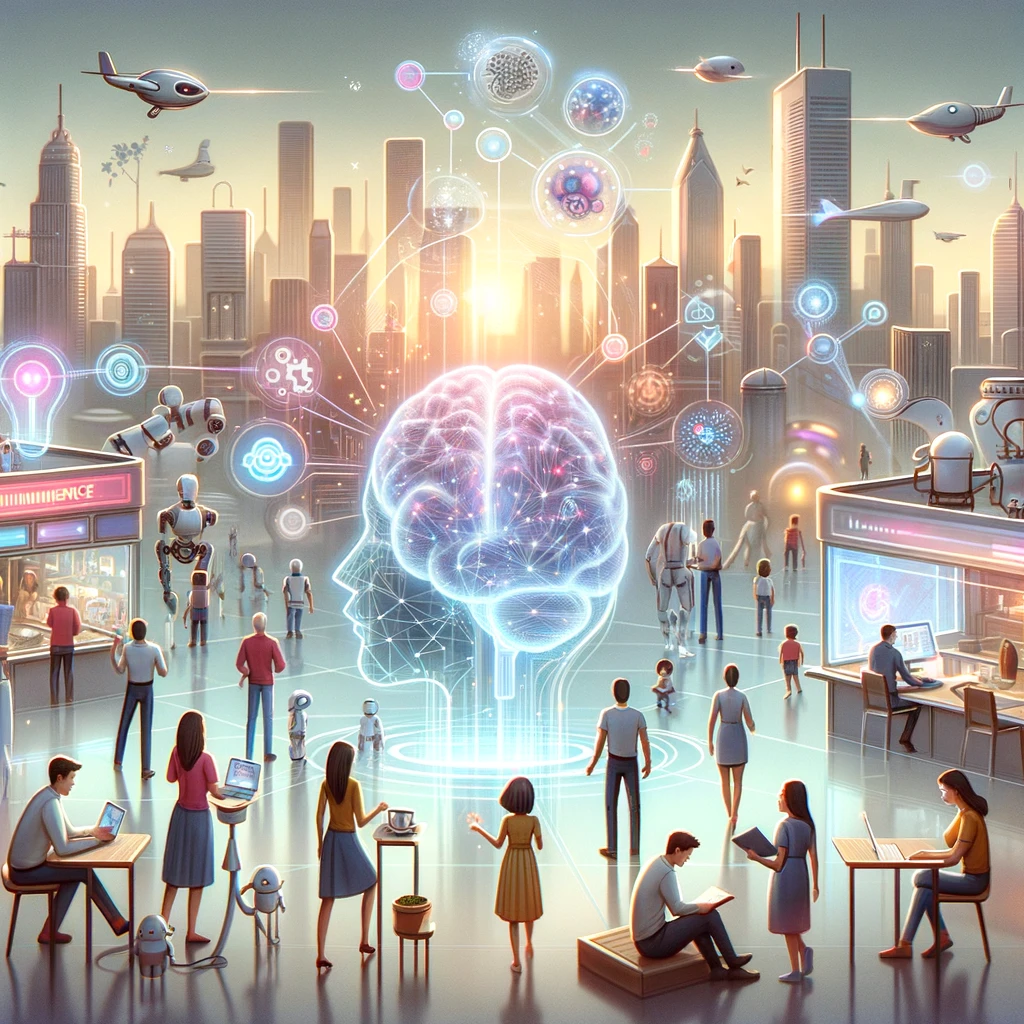AI and Ethics: Navigating the Challenges of Artificial Intelligence in Society
Welcome to the wild, whimsical world of artificial intelligence (AI), where machines learn, adapt, and sometimes even “think” in ways that would make their human creators proud—and occasionally a bit nervous. As we usher in this era of digital know-it-alls and algorithmic wizards, we find ourselves grappling with a Pandora’s box of ethical dilemmas. How do we keep these brainy bots on a tight ethical leash? Let’s dive into the quirky conundrums and moral mazes of AI in today’s society.
The Rise of the Thinking Machines
Once upon a time, AI was the stuff of sci-fi fantasies. Fast forward to today, and it’s everywhere: powering your smartphone, recommending what you should binge-watch next, and even driving cars (albeit with a human nervously clutching the emergency brake). But as AI gets smarter, so does the complexity of its impact on our lives, raising eyebrows and ethical questions alike.
The Good, the Bad, and the Algorithmic
Let’s start with the good stuff. AI can optimize routes for ambulance drivers, help farmers grow crops more efficiently, and even aid in the early detection of diseases. These are the poster children of AI applications, the kind we all root for. But there’s a flip side to this coin. AI also has the potential to invade privacy, exhibit bias, and make decisions that affect lives without any human oversight. Here lies the ethical battleground.
Bias Bytes: AI’s Not-so-neutral Nature
Bias in AI isn’t just a glitch; it’s a feature—at least until we figure out how to fix it. The problem starts with the data. AI systems learn from vast amounts of information fed to them, and if that data reflects historical biases, the AI’s decision-making will too. From facial recognition systems that struggle with diversity to job application bots that favor certain demographics, biased algorithms could amplify societal inequalities if left unchecked.
So, what’s the fix?
- Diverse Data: Incorporate a broader range of data to train AI systems.
- Constant Checks: Regularly audit AI applications to ensure fairness and accuracy.
- Ethical Engineers: Encourage diversity in the teams developing AI to bring multiple perspectives to the table.
Privacy and the Peeping Toms of Tech
Imagine an AI that knows you better than you know yourself. It knows your favorite pizza topping, the last time you went jogging (or said you did while actually vegging out on the couch), and even your heartbeat rate as you read this. Creepy, right? As AI technologies weave deeper into the fabric of our lives, privacy concerns skyrocket. The key challenge here is balancing the cool capabilities of AI with the need to keep our personal lives personal.
Privacy Protocols:
- Transparency: Be clear about what data is being collected and why.
- Consent: Always get explicit consent before gathering data, especially for personal or sensitive information.
- Control: Give users control over their data, including what’s collected and how it’s used.
Autonomous Awkwardness: Who’s to Blame When AI Fails?
Autonomous technologies like self-driving cars are no longer just a futuristic fantasy. They’re here, and they’re learning to navigate through both our streets and our legal frameworks. But what happens when an AI-controlled vehicle is involved in an accident? Who takes the fall? The “driver,” the company who made the software, or the AI itself?
Navigating this legal limbo requires new laws and perhaps even a rethinking of liability in the age of AI. It’s a hot-potato issue that lawmakers and tech companies are tossing back and forth. Meanwhile, the rest of us are just hoping the cars don’t decide to start tossing us around!
Legal Lane Changes:
- Accountability Laws: Develop clear guidelines on who is accountable in cases of AI errors or accidents.
- Safety Standards: Implement rigorous testing standards for AI systems before they hit the market.
- Ethical AI Audits: Regular assessments of AI systems to ensure they operate safely and ethically.
The Path Forward: A Quirky Quest for AI Ethics
The journey to ethically integrate AI into society is more of a winding road than a straightforward path. It requires the collaboration of tech developers, policymakers, ethicists, and, importantly, the public. Each one of us has a stake in how AI reshapes our world. So, let’s stay informed, engaged, and proactive.
As we stand on the precipice of the AI revolution, armed with knowledge and a dash of humor, we can ensure that our artificial counterparts enhance our lives without compromising our principles. So, whether you’re an AI enthusiast, an ethics evangelist, or just someone curious about the future of tech, remember: in the age of intelligent machines, staying ethically enlightened is not just smart; it’s absolutely essential!






